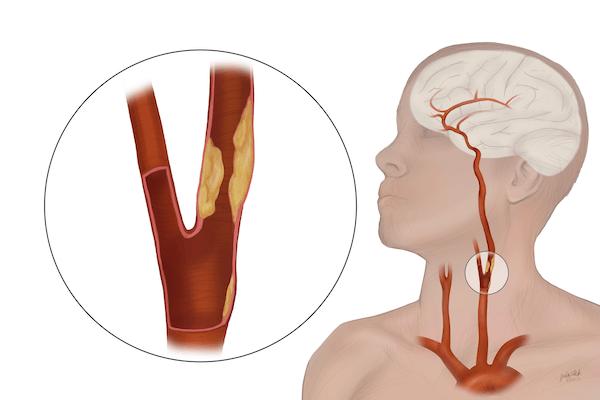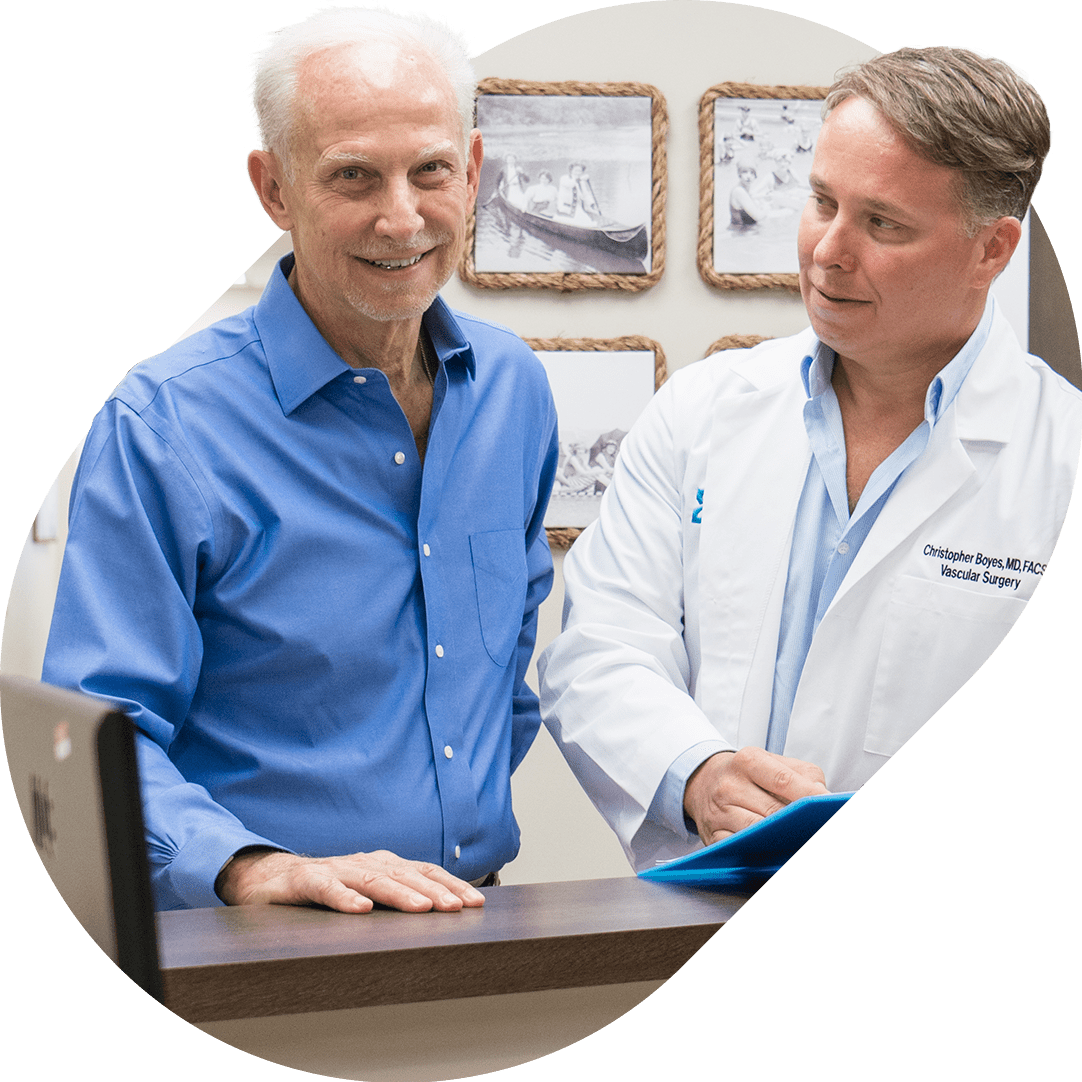
Carotid Endarterectomy (CEA) has been the leading treatment, however, it is an invasive surgery that has several drawbacks. CEA involves accessing the carotid artery via a long incision in the neck from behind the ear to the clavicle area. The carotid artery is incised for the removal of plaque tissue. An arterial bypass is created to divert blood flow around the operative section. When completed, the artery is closed with a metallic mesh patch.
The CEA is an invasive technique that can cause substantial scarring, ongoing pain, ancillary throat problems, eating issues, long recovery periods, and moderate risk of stroke during the operation. This treatment may not be an available option for patients at risk for open surgery due to underlying health complications.
Transfemoral Carotid Artery Stenting (TFCAS) was introduced as a less invasive technique. This procedure uses entry from the low-pressure femoral artery, located in the thigh. A metallic stent is guided and positioned to open the blocked carotid artery.
The long access point from thigh to neck can create problems at the aortic arch and other junctions. Prolonged prodding inside the arterial walls can release plaque debris or cause the formation of blood clots. This can lead to an embolism, perioperative stroke, or other complications. With strokes occurring during the procedure at significantly higher rates than CEA, TFCAS may be falling out of favor as an alternative.
There are non-surgical treatments, such as medication, diet, and lifestyle changes, but these only apply to modest cases.
TransCarotid Artery Revascularization (TCAR) is emerging as the leading, minimally invasive procedure. This process combines advantages of other techniques while adding a major new component.
One of the biggest risks during this type of surgery has been the introduction of debris into the bloodstream that directly reaches the brain. Methods to minimize this risk have included bypassing the operative section, or mesh filtering the blood during the procedure. This has met with varying degrees of success. The TCAR process introduces a completely different approach – blood flow reversal.
Using a patented device, blood flow is reversed out of the targeted arterial section during surgery, so that any miniscule particles dislodged during the procedure do not enter the blood stream to the brain. The drawn blood is filtered and cycled back into the body via the femoral artery during surgery, maintaining safe blood pressure levels. Other arteries continue to feed the brain, providing enough oxygen for normal brain function.
The TCAR surgery accesses the carotid artery via a small incision just above the collar bone. A sheath is inserted into the artery through a small puncture. The sheath is used to access the diseased area, reverse blood flow, expand the arterial walls, and deliver a metallic stent. The minimally invasive arterial puncture and small skin incision are stitched closed.
Animated video of the TCAR procedure (Para Español)
The advantages over the CEA and TFCAS procedures are significant.
Not everyone qualifies for the TCAR procedure as specific risk factors, health conditions, and other criteria dictate the best course of treatment. Surgery of this type is a serious medical procedure. Patients are typically of high risk for strokes. The TCAR procedure is only performed by select vascular surgeons.
It is important to follow physician’s instructions for medications before and after this procedure. Drink plenty of water up until the midnight before the procedure. Consult with the physician right away if there are questions immediately before and after the procedure.
Most patients are released to go home the day after the procedure. Patients may experience some pain or discomfort, but it should be minimal. Follow physician instructions for taking care of the incision stitches. If you experience unusual headaches, dizziness, or other unusual symptoms, immediately call the doctor’s offer or dial 911.
Dr. Christopher Boyes of Coastal Vein and Vascular Specialists is a board-certified vascular surgeon experienced with performing the Trans Carotid Artery Revascularization procedure. Please contact the office today if you feel you are a candidate for this procedure or to consult on any of your other vascular concerns.

Subscribe to our newsletter